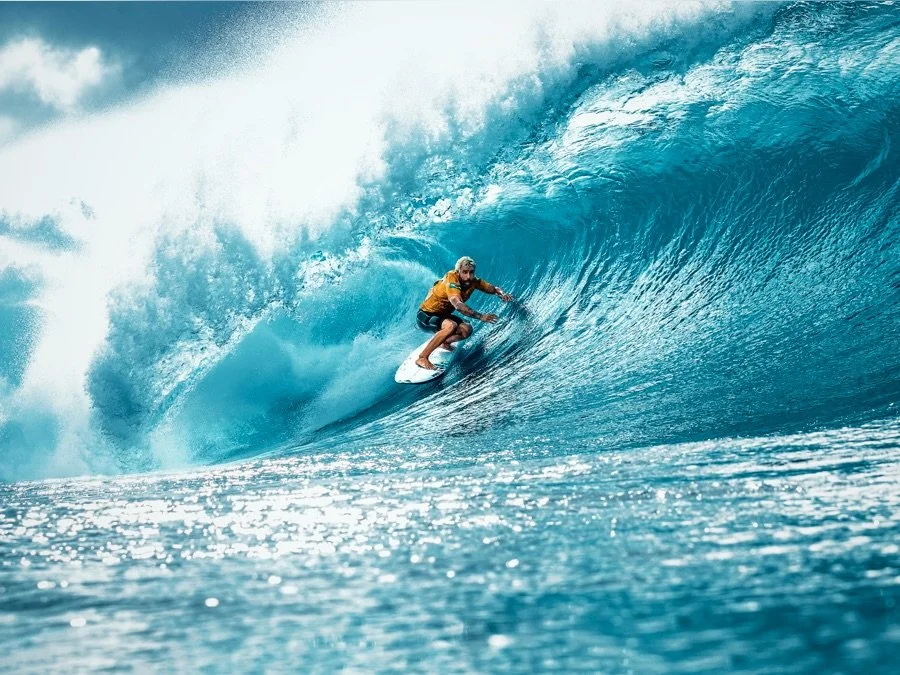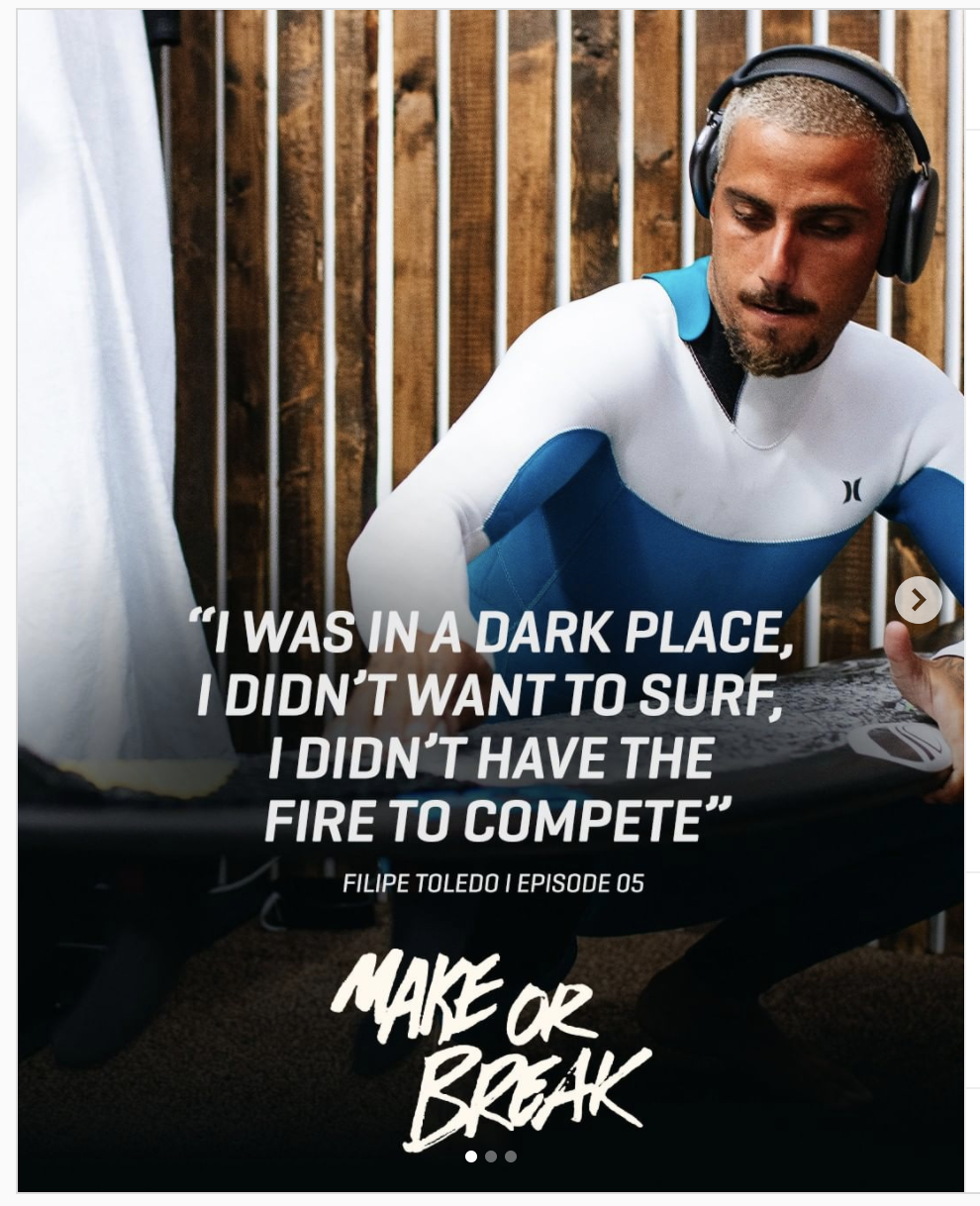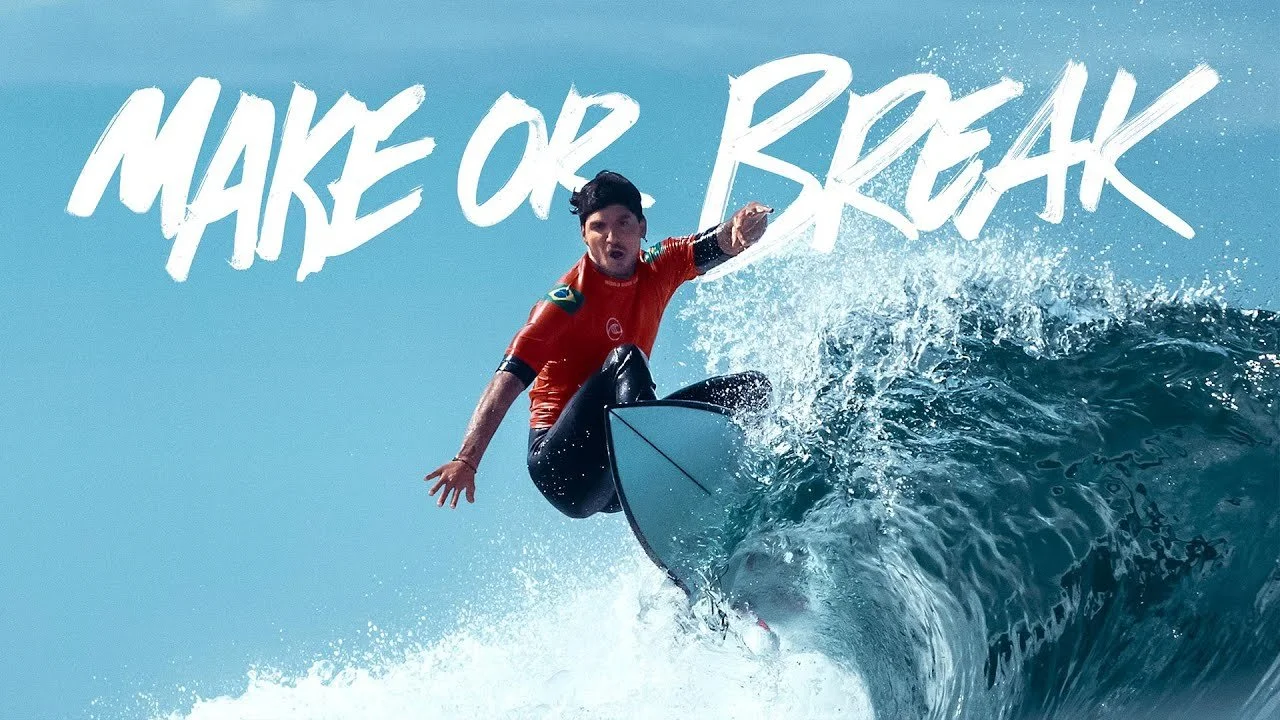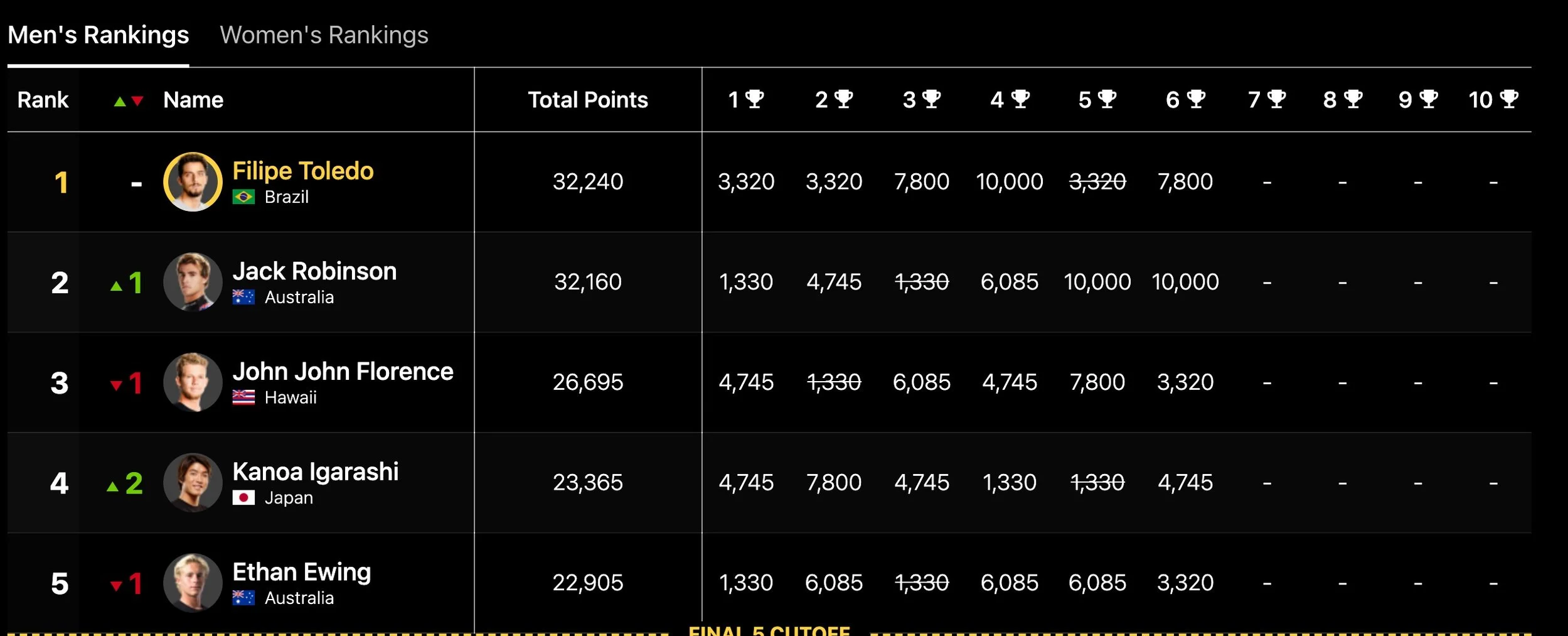Lessons we can Take From World Champion Surfer Filipe Toledo
Source: Apple TV+
Words: Aaron Bell
For World Surf League fans, Apple TV+’s new surfing documentary “Make or Break” provides a raw and in-depth look into the world of professional surfing.
Episode 5 of the series, Conquering Demons, focusses on Brazilian surfer Filipe Toledo and his battle with depression.
As someone who looks up to Filipe, and all the WSL athletes, the show is a surf fan's dream. But what struck me more than anything is the pressure - and subsequently - the mental health impacts they face.
Episode 5 details the often dark result of this pressure, and left me feeling inspired by Toledo’s story, as the athletes we so often put on a pedestal, are not immune to the same feelings of self-doubt, anxiety and depression that we too can experience.
Toledo’s story reinforced some strong lessons that resonate with me, and the core values of Waves of Wellness (WOW).
Source: Instagram
Lesson 1: Depression doesn't discriminate
Depression and anxiety can impact anyone. High-functioning and successful people everywhere experience mental health struggles too.
So often we think of athletes, entertainers, and entrepreneurs as being super human, but it’s important to remember anyone can be impacted by mental health struggles.
What we can learn from Filipe Toledo is to remember we are not alone.
“I was really in a dark place,” Toledo said.
“I wasn’t doing 100% as a professional surfer, so if I was not 100% good as a surfer, I was not 100% good as a father or as a husband as a son.
“I was failing in all areas of my life.”
Depression, anxiety and other mental health issues can impact anyone, but data shows that there is still a stigma around mental health in our workplaces. 35% of employees say they would not want anyone to know about their experience of depression or anxiety.
It’s important that we are part of the progress towards changing this narrative, reinforcing it’s okay to ask for help and part of the solution by offering ways to encourage environments where wellbeing is openly discussed.
Lesson 2: Juggling priorities is a challenge for us all
During the episode, Toledo details his battle with balancing his career, a young family, and his relationship, all while traveling across the world.
“I’m really a family guy,” he said.
“Surfing takes a lot from you, in the past I’ve struggled with that.
“The last few years I was surfing but I was thinking about all the other things that were happening around me.
“I was not really focussed on each area of my life and I was trying to do everything, be good to everyone and be perfect but I wasn’t able to handle the situation.”
While life on tour may not seem comparable to our own lives, the challenges of prioritising, compromising and most importantly, being present certainly resonated with me.
Day to day we all face challenges of being present, balancing our work life, home life, relationships, friendships etc.
Sometimes in the juggling act of our commitments, our own wellbeing gets shuffled down the priority list.
Watching Toledo’s struggle, reinforced the importance of prioritising mental health, even ahead of our careers when needed.
Data shows that one in five Australians (21%) have taken time off work in the past 12 months because they felt stressed, anxious, depressed or mentally unhealthy.
Let's reinforce that we should be taking time out of our busy lives for ourselves.
Source: Apple TV+
Lesson 3: It’s okay to ask for help
During the episode, Toledo touches on one of the most common themes of mental health.
So often toxic masculinity and stigma around mental health results in us feeling like vulnerability is a sign of weakness.
But in reality, vulnerability is power.
Joel Pilgrim, Co-founder and CEO of Waves of Wellness said as men, we’ve always been told that being vulnerable is weak.
“I call bullshit,” he said.
“It’s far easier not to open up, locking away the key to your emotions - which evidently gets you nowhere.
“It takes far more courage and strength to be truly transparent, which I believe is the essence of vulnerability.”
This narrative couldn’t ring more true in the case of Toledo, who was able to shed his perception of “strength”, and evolve as a person, a father and a husband, and lean on his partner in a time of crisis.
“At first I didn’t talk to anybody,” Toledo said.
“And then I started talking to Ananda (his wife), and she was by my side really helping me out.
“I started talking to a professional, which is a big help to me, now this year I feel really solid in my game plan, what I have to do and controlling my emotions.
“I have my wife with me, someone to talk to, it was a little bit easier on the days I was losing it.“
As well as his partner, Toledo’s vulnerability also fostered an openness with his competitors, who he lives with on tour, who he now leans on for emotional support.
“Before this year, I never talked about my feelings with them, I never felt comfortable talking about it. But now they know, and of course they were like ``if you ever need anything I’m here.
“It’s really amazing to know that I can count on someone.”
“We needed that support from each other. All my friends, if they ever wanna talk about anything, I’m here.”
Toledo has built a support network around him to ride the waves alongside and shows the power of knowing it’s okay to not be okay.
Source: WSL
Not feeling like he has to take the world on alone has led to success on the board too. It’s no surprise to me that prioritising his mental health has resulted in success on the waves, as he currently sits as world number one.
Whether you are a fan of professional surfing or just looking for your first wave - being vulnerable, and prioritising your mental health is a lesson we can all take from Filipe Toledo and Make or Break.




